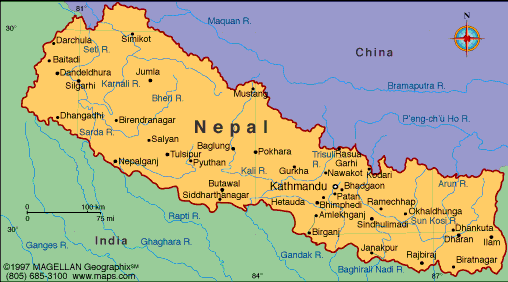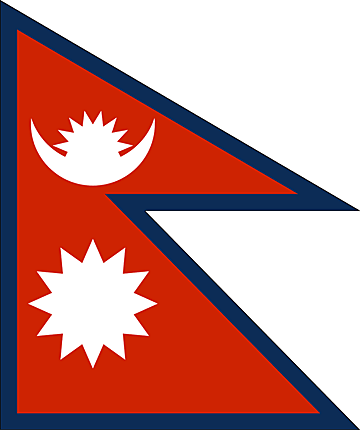Never in my life have I experienced a more supportive, uplifting community than when I visited South Africa with the St. Cloud State University Concert Choir in the spring of 2011. South Africa is a beautiful, diverse country with a troubled past, but despite all that has happened in the past 40 years, I did not expect the welcoming atmosphere I encountered.
South Africa is a large country that makes up the southern tip of Africa. It is made up of nine provinces; Gauteng, Northern Province, Mpumalanga, North West, KwaZulu/Natal, Eastern Cape, Western Cape, Northern Cape, and Free State, and is bordered by the Atlantic and Indian Ocean to the south and east. To the northwest and northeast, it is neighbored by Zimbabwe, Namibia, Botswana, Mozambique and Swaziland. South Africa is made up of a total land area of 471,008 sq. mi, and has a total population of 49,109,107. (1) Its administrative capital is Pretoria, while it’s Legislative capital is Cape Town in the south, the largest city in the country. The seasons in South Africa are completely opposite of those in the United States. When we are experiencing fall, they will be going through their spring. The climate varies from Mediterranean in the southwestern corner of the country, temperate in the interior plateau and a small portion of desert climate in the north. (1) Most days are expected to be warm, with it being breezier on the coast and chilly at night, with rainfall in the winter seasons. South Africa is a Republic government, and their current president as of 2009 is Jacob Zuma who is the third president in South African history after Thabo Mbeki and Nelson Mandela.
Nelson Rolihlahla Mandela was born July 18, 1918 in a small village called Mvezo. He started primary school at the age of seven and from there went on to complete his degree in Johannesburg some years later. Mandela’s involvement in a defiance campaign brought about by the Nationalist Party in 1949 was what led to his first criminal conviction. (1) After multiple offenses and a couple short imprisonments, Mandela began a sabotage campaign with the ANC’s military wing formed under his leadership. After returning from military training, he was arrested and sentenced to five years in prison; charged with leaving the country illegally and incitement to strike. (1) He was then sentenced to life in prison after being charged with sabotage in the Rivonia Trial. After 27 years, on February 11, 1990, he was released from prison, and it was only three years later that he was elected the first president of democratic South Africa. He completed his five-year term in 1999, but continued being involved in global affairs until 2004. (1) It is because of Nelson Mandela that Apartheid was abolished.
Now, our choir tour to South Africa this past spring was initially a cultural educational tour about Apartheid, but what we took from it was so much more. As we were preparing for the trip, not one of us knew what to expect. Knowing very little about Apartheid and South Africa’s history, the only knowledge we had with us was that of which that we took from pre-trip history classes. We left for South Africa on March 1, and arrived 32 hours later in Johannesburg. Though we were only there for two days, it was there that we visited the Apartheid Museum and learned about Nelson Mandela.
Port Elizabeth was next on our tour, and it was here that my experience was truly made. We spent a week in the beautiful beachside city, visiting the Nelson Mandela Metropolitan University, singing in multiple churches and taverns and most importantly, making way to many life long friends with the NMMU Choir. They made our stay in PE feel like home. We performed at their home concert our second night in PE, and what happened after we sang was something that I will never forget. We blew through our first couple of pieces with no pauses for applause in between, until we came to our final piece, “My Soul’s Been Anchored.” Throughout the entire concert I could feel the anticipation from the crowd, but after that final song nothing held them back from showing their appreciation. Everyone in the auditorium was on their feet, including the NMMU Choir. Hands were in the air, trills and yips echoed through the hollow space; you could really see how much the people there appreciated music.
What happened at that concert didn’t end there. Every concert or performance we had, had the same reaction. Whether college student or elder, everyone we sang to seemed to love us. We were even told multiple times how shocked people were to hear such a sound come out of an American choir. There were many times that we were able to be the audience too, and we noticed the same passion in the music when they performed it as when they listened to it, we were often called to join in with the other performers as well which made the experience as a whole even more personal. Whether it was singing or dancing, the performers never held back, and it gave our choir a chance to look at music in a completely different way.
What I took from South Africa will be with me forever. The love of music, friendly smiles everywhere you go and the appreciation for such simple things make you really take a look at what you have. In America it is rare to find such light-hearted people, and noticing these differences in personal things such a music and choir shows the different forms of respect music is given in different countries. In the words of Nelson Mandela, “Education is the most powerful weapon which you can use to change the world.”

“Tshotsholoza” with the local youth Choir.

St. Cloud State University Concert Choir at the Elephant Reserve.
Sources:
Hain, Peter (1996). Sing the Beloved Country. Chicago, IL: Pluto Press
Toase, F.H. (1998). The New South Africa. New York, NY: St. Martin's Press Inc.
Beck, Roger B. (2000). The History of South Africa. Westport, CT: Greenwood Press






